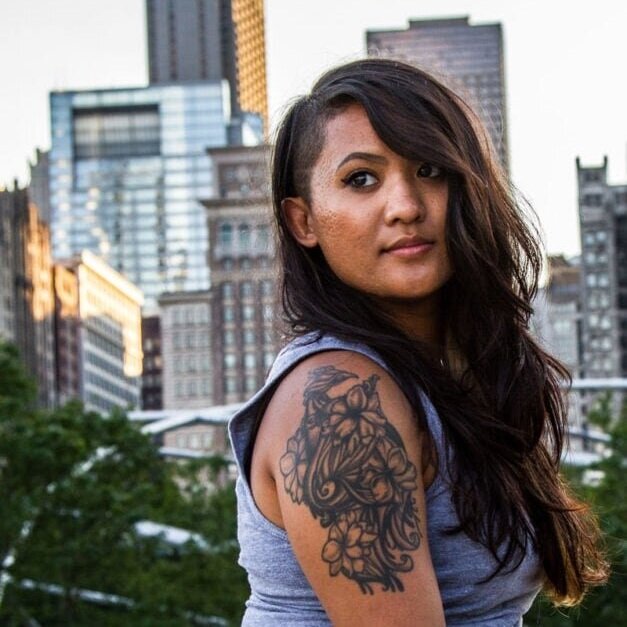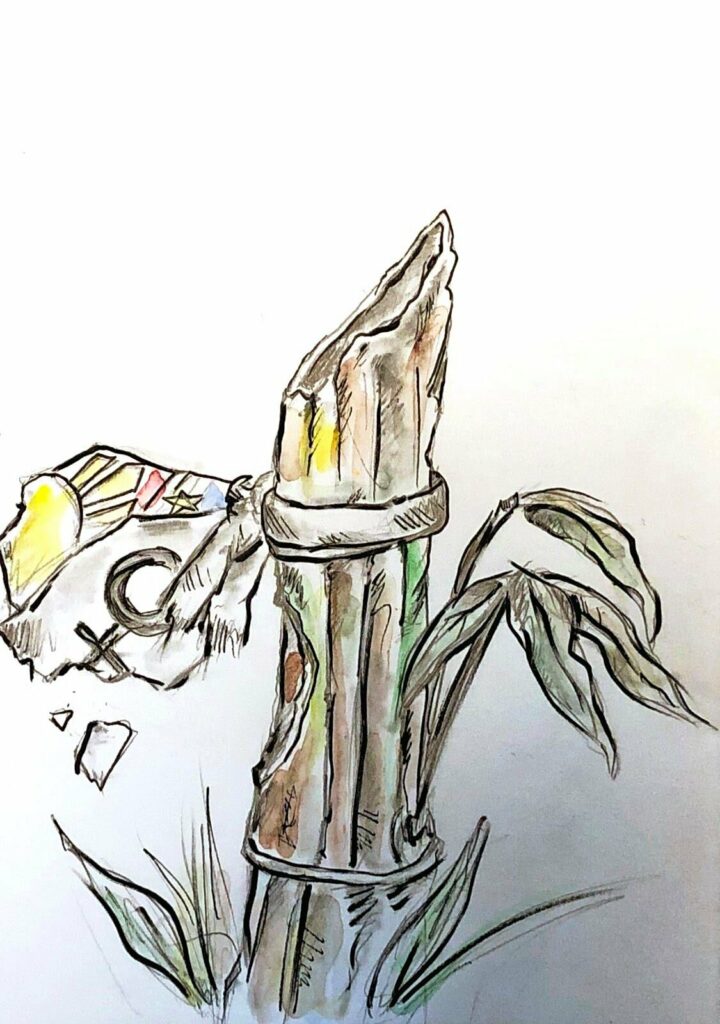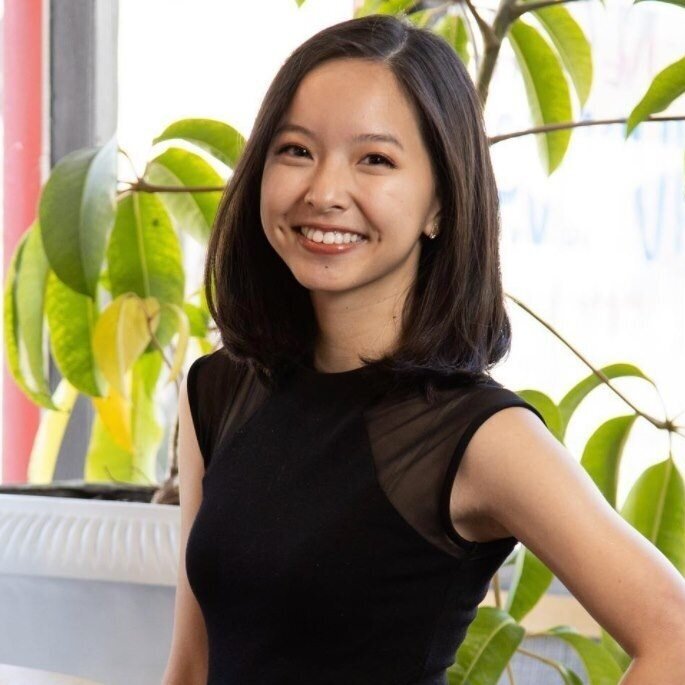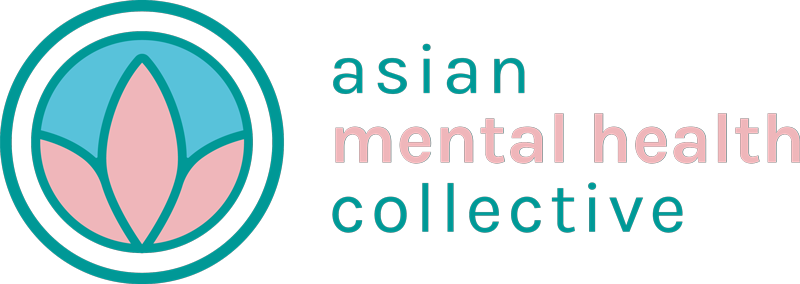By: Tina Tran and Lisa Cheng
The month of March brings AMHC to highlight standout volunteers in our community, Alex San Diego and Elisha-Rio Apilado, and their lived experiences as women and with imposter syndrome.


What is your experience with “imposter syndrome”? As a woman, how do you feel like your identity impacts your experience?
ALEX SAN DIEGO:
I first sought out help for imposter syndrome right before I started grad school, but I think I’ve suffered from it for a long time. I used to think I had imposter syndrome simply because of the environment I was in — grad school, working on a marketing team with zero marketing/business-related education combined with the usual symptoms of anxiety and depression — mainly low self-esteem and overthinking. I then started reading about the relationship between imposter syndrome and being an Asian woman, and learned that “when you experience systemic oppression or are directly or indirectly told your whole life that you are less-than or undeserving of success and you begin to achieve things in a way that goes against a long-standing narrative in the mind, imposter syndrome will occur.” So now, whenever I start to doubt myself, I remind myself of all the work I’ve done to get to where I am and that this sneaking voice in my head is actually the voice of the oppressive systems around me.
ELISHA-RIO APILADO:
Imposter syndrome hit me in my early 20s, fresh out of college. I received my Bachelor in Fine Arts and was headed into the advertising world. I saw what other graphic designers and illustrators created in my field and constantly doubted that my work would be any good to make it onto a billboard or a TV spot. But this also pushed me to work harder and fine-tune my skills. The doubt that came with having some symptoms of “imposter syndrome” eventually became the fuel to the fire. I had to keep working hard, not to prove to others, but to prove that I could be the best version of “good enough” that only I saw myself as, not what others tried to do.
As a woman, especially at that time, a young woman of color in such a male-dominated field, I would be talked down to, not allowed much say in brainstorm meetings, or cut off. Often, being an Asian American woman is seen as submissive and non-confrontational. It took me a while to build up the confidence and strength to stand up for myself and speak up.
Growing up as a Filipina-American, I was always told to follow the rules and never question any authority figure or older person. However, I realized I am just as qualified to be a part of the industry as any other person regardless of our racial identity or age. I needed to see them as my peers and teammates, not people I had to follow directions from.
Have you ever overlooked your goals and your successes because you felt like you didn’t deserve them?
ALEX SAN DIEGO:
Absolutely. In my first full-time job in marketing, I accepted a salary much lower than what I actually deserved because I felt lucky just to be offered the position.
Even now, when I’m completely aware of imposter syndrome and what causes it, there are times where I worry that people will “find out” I’m not everything that they “think” I am.
ELISHA-RIO APILADO:
I think the only time I felt this way was when I was in high school, and unfortunately, being belittled by an immediate family member. Being the only child in my family born in the States with much more opportunities, my share of school and work successes were dismissed and deemed unimportant by some family members.
Unfortunately, family can become a factor in the way you view yourself as an individual. Individualistic and collectivistic values are still something I constantly find myself battling to this day, in my 30s. It took me a close group of friends and some time isolating myself from toxic family relationships to recognize my worth, and the hard work I put into my accomplishments were, in fact, things that I deserved for myself.
What would you say to someone who is experiencing imposter syndrome?
ALEX SAN DIEGO:
Your failures don’t make you who you are. Your successes do not make you who you are.
What makes you who you are is how you treat yourself plus how you treat the world and people around you.
When your feelings of being an “imposter” start to cave in, focus on the facts not how you feel.
The facts are, that despite the odds that were against you, you were able to become the person you are today. You made it this far.
That’s more valuable than any degree, job, or award out there. Don’t diminish yourself and take up space. Be proud of what it took for you to get to wherever you are today.
ELISHA:
I would say that it is a part of the journey. It’s that uncomfortable part of life we all go through, but we always get through in the end. It’s also something that can come in and out of your life and hit you the most when things are going sour, or life is just not being fair to you. However, you have to remember your inner strength and develop the coping skills to bring you back up from the deep waters. This could involve finding a tribe of friends who are the best support system for you or finding quotes online that resonate with you and provide a reminder for you to keep going.

The art piece I created started off with a metaphor I always hear around the Filipino community:
Bamboo grass is stronger than trees, they say. During a storm, trees can be pulled out of the ground due to strong gusts of wind because they are stiff. While bamboo grass goes with the flow of wind that keeps them grounded. This is a story of resilience. Filipinos tend to be resilient and strong even in times of calamities. Filipinos are able to remain standing even after a huge storm, just like bamboo grass.
I wanted to use this metaphor but twist it similar to the way bamboo gets broken down, frayed, gnawed at, and exhausted. I identify strongly with my Filipino roots, but it took a while to get here because of how I was forced to assimilate to the American culture. Reflecting on my life thus far had me thinking of all the times I was oppressed, discriminated against, and bullied for being a woman of color and especially being Asian.
This bamboo grass symbolizes my experience of oppression. It tries to stand tall and resilient like how our parents raised us, but it has been bandaged, with pieces falling off, and leaves dying. The colors have faded, and the sticks are slowly fading from bright green to brown because of exhaustion from carrying weight, anger, frustration, and sadness from the hatred by others just because it looks different. My symbols for female, Philippines, and United States are on the sides, frayed and falling apart. These have been the prominent labels of my identity I’ve received a lot of grief over. But although this bamboo is falling apart and losing color, it is still standing tall – representing my will to continue fighting and standing up for myself in hostile environments.
About the Authors


Tina was born and raised in Anaheim, California along with her brother and 4 dogs. She graduated from UC Riverside in 2020 and am currently working as a medical assistant. She is an aspiring physician assistant and hopes to serve low-income populations in need. A fun fact about her is she was also crowned Miss Vietnam of Southern California in 2020. She is proud to have grown up around strong, independent women who have inspired her to work hard towards my goals.
Lisa is a first generation Chinese-American based out of Chicago, Illinois. At AMHC, Lisa serves as the Director of Human Resources. Inspired by community organizers, Lisa is especially passionate about addressing structural and systemic change. She is dedicated to addressing mental health in a grassroots, community-first manner. Lisa’s personal mission is “to do good,” and this led her to study for her Master’s of Social Work at the University of Chicago. As someone who sees a therapist every week, Lisa aims to help destigmatize mental health in the Asian community by normalizing therapy and conversations about mental health

